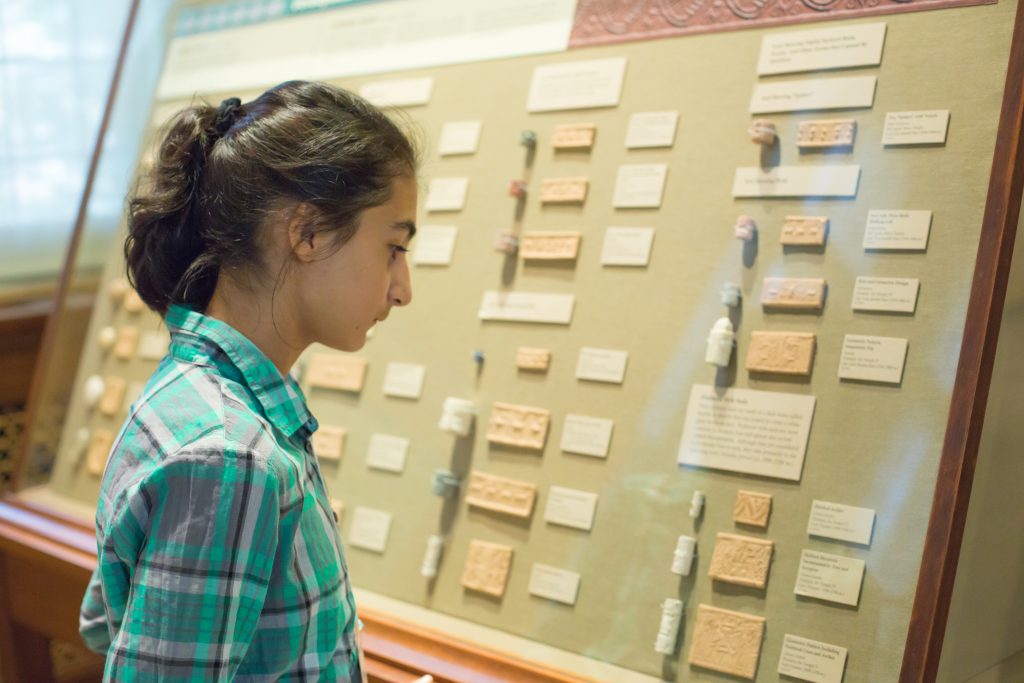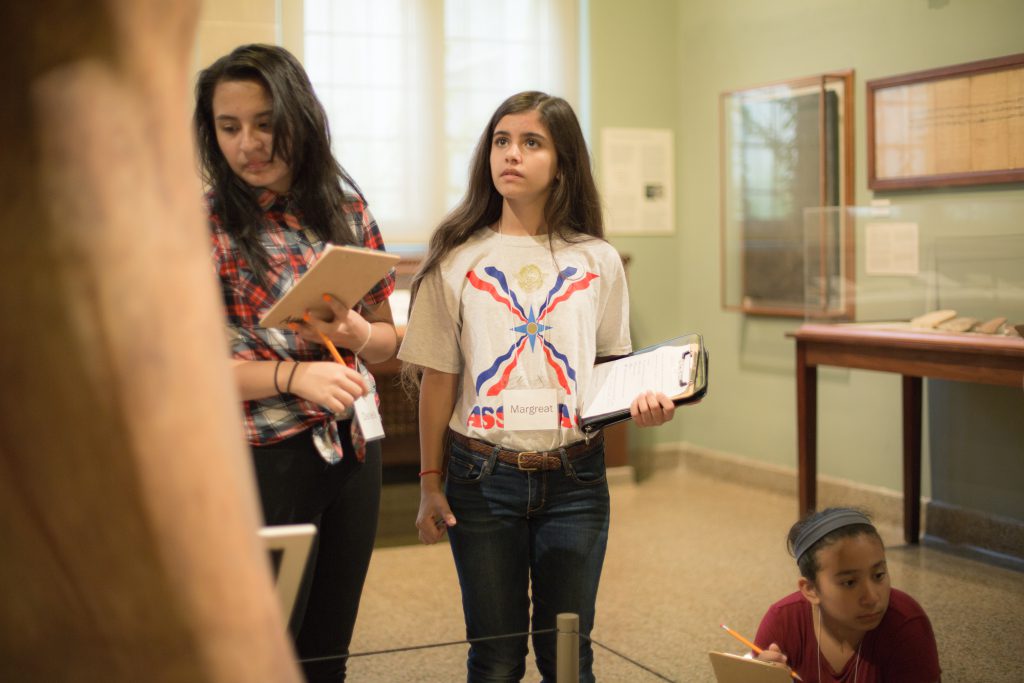5 Important Reasons to Teach Your Kids Assyrian History
As a tribute to the traditional twelve-day celebration of the Assyrian New Year, we’re sharing unique ways to honor Akitu no matter where you are in the world as we count down the days to Kha b’Nissan.
Most diaspora-born Assyrians have a vague sense of their history. They know, for example, that it spans thousands of years. They’ve heard and repeated the phrase “the cradle of civilization.” They can probably name a few famous Assyrian kings, and they surely know of Queen Shamiran. Fast forward a couple thousand years—they also know that our modern history has been defined by genocidal violence. But that’s about it.
If you’re a parent, you certainly don’t need to be told why it’s necessary that you’re involved in your child’s education. However, it can be difficult to figure out what subjects to prioritize now, and what can wait until they’re older, especially with limited resources available to you. But’s important to expose them to Assyrian history. Here’s why:
- Children develop a greater appreciation of history when they learn it early.
Studies have shown that skills children are taught to appreciate at an early age translate into good habits and deep passions as they grow and mature. Take, for example, a child that spends every Sunday cheering on the Chicago Bears with her parents. She will likely become a Bears fan for life (and also develop serious levels of patience). Or consider a child who takes music lessons—he’s far more likely to continue to practice as an adult. A child who goes fishing with his father, and so on. While learning Assyrian history is not exactly a recreational activity, it can be fun. Children enjoy fun facts and interesting stories. Spend some time talking about the history of the great nation of which they are descendants. Keep reading for ideas on how to provide them with opportunities to ask questions and seek answers about their history.

- They will not learn about Assyrian history in school. Most Assyrian-American students will never hear the word “Assyrian” uttered by their teachers, nor will they see it printed in a textbook. Those that do might come across it once or twice while flipping through pages when searching for their assigned reading, but its is never a part of a school’s curriculum. While Assyrian history is certainly not the only one that’s overlooked, it must be prioritized in Assyrian households. It is absolutely important to encourage children to learn about the history of Western nations, but it’s just as important to realize that their history classes will exclude information about Assyrians. This will have lasting negative effects on their understanding of their own history, as it’s likely they will come to accept its exclusion as a lack of importance. Spend time personalizing Assyrian historical figures and events for your children. Check out our list below for ideas on how to do this. They should have the opportunity to learn about topics and important events related to Assyrians that they will not be learning in class.

- It will help shape their identity as an Assyrian. As children grow and mature, there is a natural, increase desire for them to explore their roots—they want to know who they are and where they come from. Learning Assyrian history can provide Assyrians of any age with a better sense of their identity, including children.

- Exposing your child to Assyrian history will help them develop qualities like empathy and tolerance.
Learning about your ancestors and cultural heritage is essential. For most Assyrians growing up in American schools, they naturally view the histories of other peoples, including their own, as foreign. Giving them the opportunity to study Assyrian history will help broaden their perspective. They will come to understand and appreciate that there is more to the world than what they’ve known. A child who is taught about other countries and backgrounds is more likely to grow up to be compassionate, socially-aware, and tolerant.

- Learning about Assyrian history helps children build connections with their community.
A child who has been given the opportunity to explore their own history is more likely to get involved with their community later in life. This can mean many things—perhaps they will get involved with the Assyrian Athletic Club, pursue Assyrian studies, or become a social activist—regardless, they will recognize the importance of their involvement. They will grow up feeling connected to other Assyrians, and will appreciate the sense of belonging.
Here are some easy ideas:
- Visit The Ashurbanipal Library at AUAF. As the largest collection of Assyrian texts outside the homeland, you will find almost everything by Assyrians or about Assyrians under our roof. Not only will they find plenty of books on Assyrian history, but they will appreciate the experience.
- Take a trip to the Oriental Institute. The museum’s Assyria Collection will leave any young one in awe of their history.
- Try one of our Assyrian-themed arts and crafts activities. They provide the perfect opportunity to talk to your kids about their history, and gets the little ones engaged.
- Encourage your children to select an Assyrian book or figure for their school project when possible.
- Share with them important documentaries focusing on Assyrians. The Last Plight is a moving documentary that’s a must-see for all Assyrians. Though it’s only ten minutes long, it packs a heavy message. It may not be appropriate for your youngest kids, but those in the double-digits should see it. It’s guaranteed to spark all the right questions.
